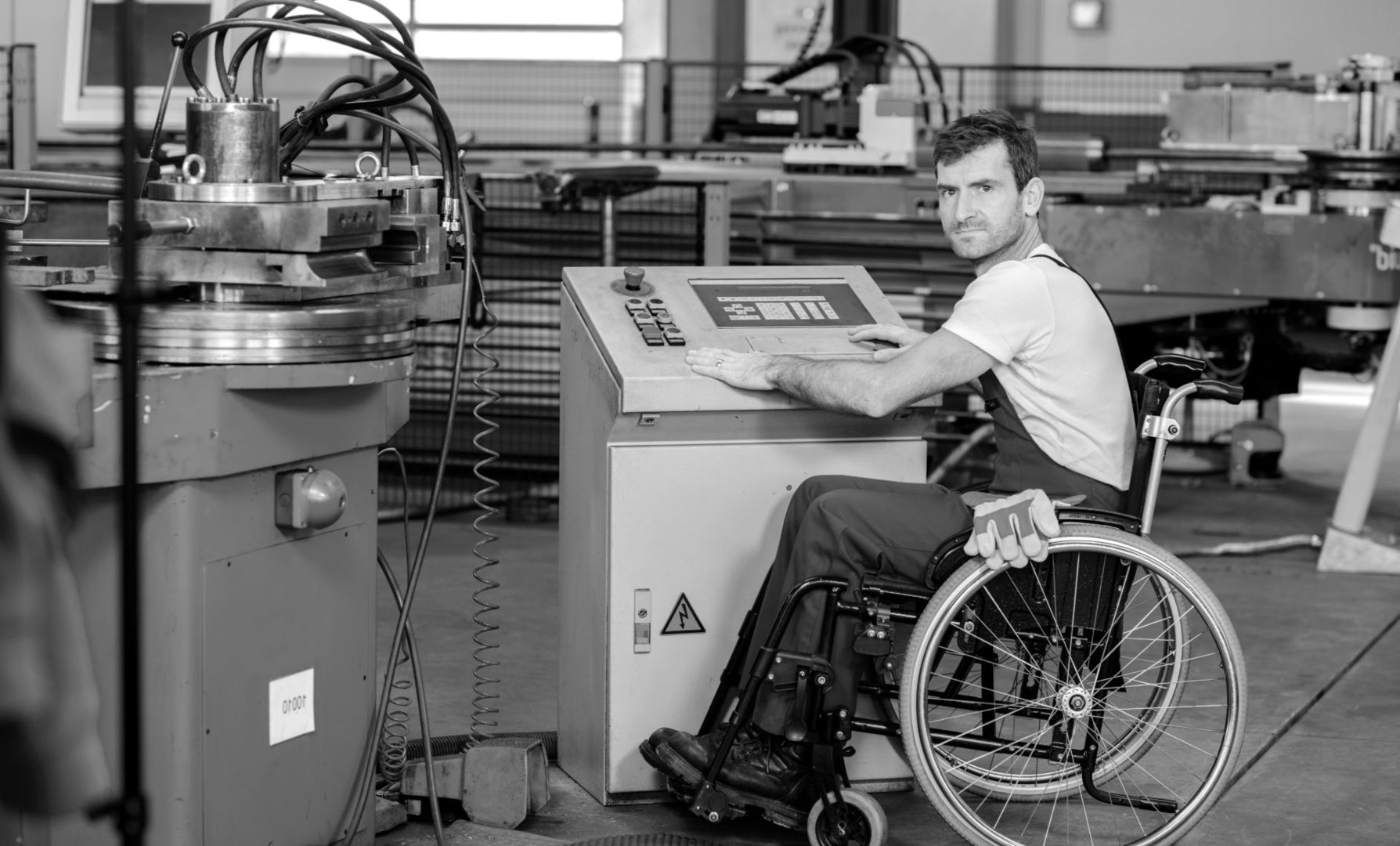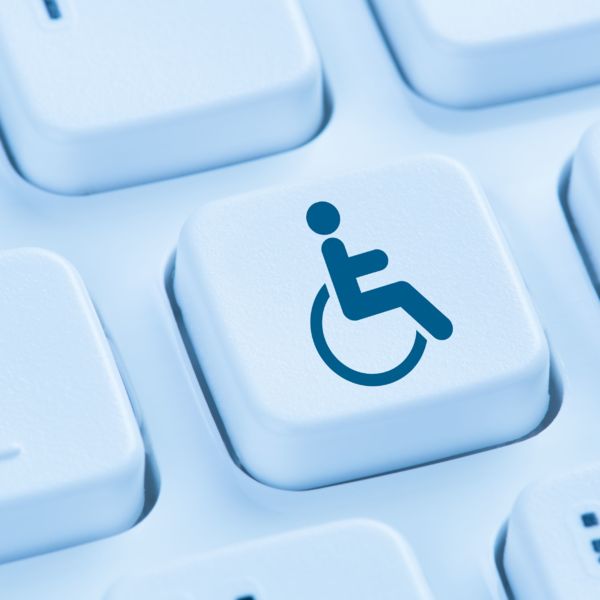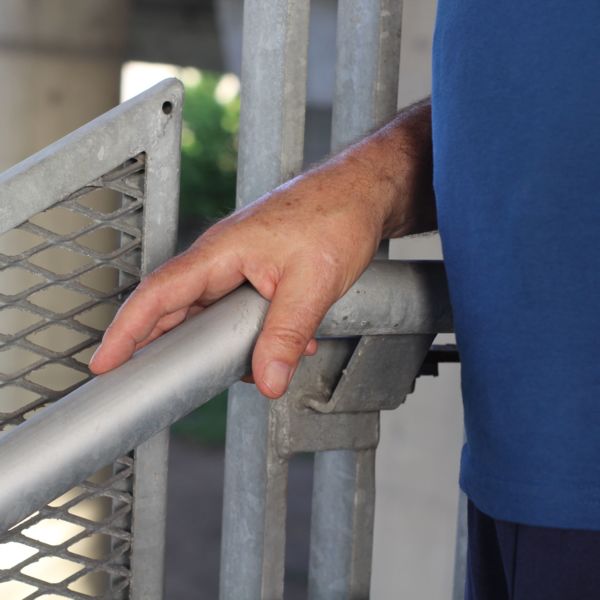
Disability
People with disabilities are more affected by discrimination and restricted in their opportunities to participate than people without disabilities.
Even in Liechtenstein, they are not always able to participate fully in society. International conventions such as the UN Convention on the Rights of Persons with Disabilities (UNCRPD) promote the rights of people with disabilities. The UNCRPD came into force in Liechtenstein at the beginning of 2024.
UN Convention on the Rights of Persons with Disabilities
Liechtenstein Association for Persons with Disabilities (LBV) and Disability Equality Office

Lisa von Reden
Disability Monitoring Centre (MOBE)
Equal Opportunities Department
Monitoring Body for the UN Convention on the Rights of Persons with Disabilities (MOBE)
The UN Convention on the Rights of Persons with Disabilities (UNCRPD) was adopted by the United Nations General Assembly in 2006 and came into force in 2008. It is a visionary instrument and was drawn up with the participation of people with disabilities. The goal of the UNCRPD is the inclusion of all people. At the same time, all social barriers should be removed. It is based on a very comprehensive understanding of disability, which also includes people with mental illnesses, for example.
Liechtenstein signed the UNCRPD in September 2020 and ratified it in parliament at the end of 2023. It has been in force in Liechtenstein since January 17, 2024. Liechtenstein drafted an interpretative declaration on Article 24 paragraphs 2(a) and 2(b), which considers inclusion in the school system to have been achieved and allows for exceptions based on the best interests of the child. The Additional Protocol to the Convention, by which the States Parties accept that the Committee may examine individual communications and conduct inquiry procedures, has not been ratified by Liechtenstein.
The Department for Equal Opportunities was appointed as the state contact point for the implementation of the UNCRPD in Liechtenstein. The independent Monitoring Office (MOBE), which monitors implementation, is based at the VMR.
The VMR recommends: Liechtenstein should...
... quickly draw up an action plan for the implementation of the Convention on the Rights of Persons with Disabilities.
2nd VMR statement on the ratification of the UNCRPD
2024-01-05 Liechtenstein interview with Lisa Hermann on inclusion and participation
UN Convention on the Rights of Persons with Disabilities
Report and motion on the ratification of the UNCRPD (BuA 100/2023)
Shadow translation UN Convention on the Rights of Persons with Disabilities
Rights of people with disabilities
The law on equality for people with disabilities has been in place since 2006. It states that people with disabilities have the same rights as everyone else and have the right to a self-determined life. The law also provides for a Disability Equality Office. The office has been based at the Liechtenstein Disabled Persons' Association (LBV) since 2007. The "sichtwechsel" networking group is also managed by the LBV.
In addition, the UN Convention on the Rights of Persons with Disabilities came into force in Liechtenstein on January 17, 2024. Its implementation is monitored by the monitoring office set up for this purpose at the VMR.
The central principle of the UN Convention on the Rights of Persons with Disabilities (CRPD) is the inclusion of people with disabilities in all areas of society. The implementation of the convention promotes numerous sustainable development goals (SDGs) such as inclusive education, health and well-being, decent work for all, inclusive urban and settlement design and inclusive societies in general.
The VMR recommends: Liechtenstein should...
... quickly tackle the collection and publication of internationally comparable data and make it accessible to all.
... quickly introduce a silent and barrier-free emergency call system for people at risk.
Barrier-free access to information
Barrier-free access to information is also fundamental to inclusion. Barrier-free access must not only be achieved through technical and design adaptations, but must also include the comprehensibility of the content. In 2022, the revision of the Disability Discrimination Act came into force, which regulates barrier-free access to the websites and mobile applications of public bodies in accordance with EU Directive 2016/2102.
The VMR recommends: Liechtenstein should...
... consistently promote the implementation of accessible websites and mobile applications.
Voting rights of people with disabilities
In Article 29 of the UN Convention on the Rights of Persons with Disabilities (CRPD), states parties undertake to guarantee political rights to persons with disabilities. States must ensure that persons with disabilities can participate in political and public life on an equal basis with others, i.e. that they can vote and be elected.
In Liechtenstein, people are excluded from the right to vote if they lack capacity. A person's capacity has been periodically reviewed since 2024. In addition, restrictions on the right to vote and to stand for election must be legally justified, objective and appropriate.
However, the non-discriminatory development of voters' will, as set out in Article 25 of the International Covenant on Civil and Political Rights, goes even further: in order to actually enable people with disabilities to exercise their right to vote, measures are required, such as accessible voting documents in simple language, Braille or sign language, as well as assistance services for informed decisions. This is not the case in Liechtenstein.
The VMR recommends: Liechtenstein should...
Make voting documents and electoral processes accessible and inclusive. Adapt the procedures for exclusion from voting and electoral rights to the requirements of the Convention on the Rights of Persons with Disabilities.
Do you have questions about human rights? Have your human rights been violated? Have you observed human rights violations? Then get in touch with us.



